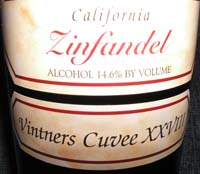Pride has excellent cab franc. Hard to find outside of the winery and restaurants. Was Jay Hebert around during your tour? Great guy… Pride is a perfect example of mountian fruit.Just tasted a Cab Franc at Pride last Saturday. Fantastic stuff.
Little known fact look at who Titus makes wine for. A hidden gem in Napa.




